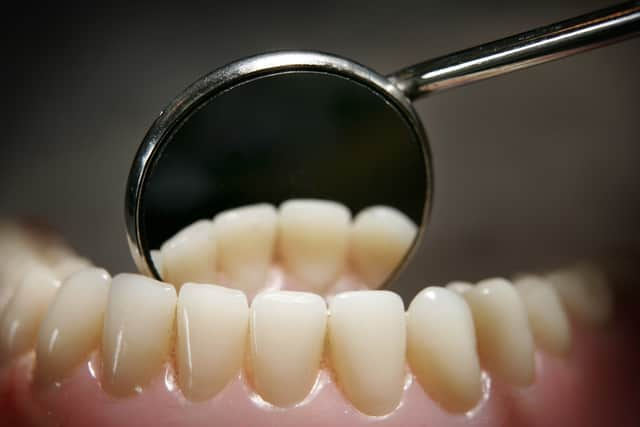Teeth regrowth: scientists develop a groundbreaking new drug to create a new set of teeth
This article contains affiliate links. We may earn a small commission on items purchased through this article, but that does not affect our editorial judgement.
and live on Freeview channel 276
A groundbreaking drug which will allow humans to grow teeth is now heading to human trials.
Researchers in Japan are developing a medicine that will enable people to regrow their teeth to replace the ones that get lost.
Advertisement
Hide AdAdvertisement
Hide AdClinical human trials will commence in 2024 after the researchers have already proven it can trigger tooth growth in mice and ferrets.


Dr Katsu Takahashi, head of the dentistry and oral surgery department at the Medical Research Institute Kitano Hospital, has been working on the drug since his graduate student days, in the early nineties.
"The idea of growing new teeth is every dentist's dream,” he said to Japanese journal The Mainichi, adding that he was confident he’d be able “to make it happen."
The groundbreaking dentistry endeavour, supported by the Japan Agency for Medical Research and Development (AMED), aims “to deliver a therapeutic drug to patients with congenital edentulism [people wholly or partially toothless] through the cooperation of more than 10 medical institutions and research institutes nationwide,” reads a statement on the clinic’s website.
Advertisement
Hide AdAdvertisement
Hide Ad“We believe that this research will clarify the mechanism of the disease (congenital Anodontia) for you and many other patients and contribute to the development of a cure.”
The research team has already successfully grown a "third-generation" of teeth, after the first round baby teeth and then permanent adult teeth was successful in animal models. Researchers targeted a gene called USAG-1, which has been found to limit tooth growth in mice. Takahashi’s team induced tooth regrowth in mice and ferrets.
The promising results were published in the scientific journal Nature in 2021, and will be an alternative solution for individuals who have lost their teeth due to severe cavities or dental diseases.
Once its safety and efficacy are ensured, the focus will be on treating children aged 2 to 6 who display signs of anodontia, reported the Mainichi.
Advertisement
Hide AdAdvertisement
Hide AdDr Takahashi envisions a future where tooth-regrowth medicine becomes a viable third option alongside dentures and implants, offering individuals a chance to regain their natural teeth.
"We hope to pave the way for the medicine's clinical use," Takahashi noted.
Following the clinical trials, the research team plans to have the medicine ready for general use in 2030.
Comment Guidelines
National World encourages reader discussion on our stories. User feedback, insights and back-and-forth exchanges add a rich layer of context to reporting. Please review our Community Guidelines before commenting.
